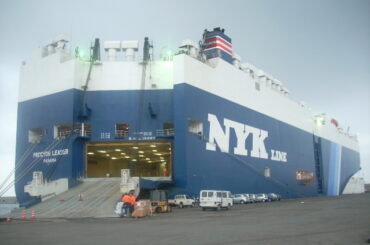So, you’ve heard about the Continuous Synopsis Record (CSR) of ships, but do you truly understand its significance in the maritime industry and why it’s essential for vessels? The CSR is more than just a simple record; it encapsulates a ship’s entire operational journey and compliance history. By delving into its contents, you’ll uncover a world of information that shapes the safety and regulatory landscape of the seas.
Importance of CSR in Maritime Industry
Understanding the importance of the Continuous Synopsis Record (CSR) in the maritime industry is essential for ensuring regulatory compliance and operational efficiency. The CSR serves as a thorough document that contains crucial information about a vessel, such as ownership details, operational history, and compliance with international regulations.
One of the key benefits of the CSR is its role in enhancing transparency and accountability within the maritime sector. By maintaining an up-to-date CSR, shipowners can demonstrate their commitment to following international standards and regulations, thereby improving their reputation and credibility in the industry.
However, managing a CSR comes with its challenges. Keeping the document accurate and current can be a time-consuming task, requiring meticulous record-keeping and attention to detail.
Additionally, ensuring that the CSR aligns with the latest regulatory requirements and amendments poses another challenge for ship operators. Despite these challenges, the benefits of a well-maintained CSR, such as streamlined regulatory compliance and enhanced operational efficiency, far outweigh the difficulties associated with its upkeep.
Contents of a CSR Document
A thorough Continuous Synopsis Record (CSR) document is an indispensable tool in the maritime industry, providing a detailed account of a vessel’s important information necessary for regulatory compliance and operational oversight.
The CSR document includes extensive vessel information such as the ship’s name, registration details, and ownership particulars. Cargo details, including the type of goods carried and their quantities, are also recorded to guarantee compliance with international shipping regulations.
Moreover, the CSR document contains records of ship inspections, documenting dates and outcomes of safety inspections, maintenance checks, and audits. This information helps regulatory authorities and stakeholders assess the vessel’s compliance with safety and environmental standards.
Environmental data, such as fuel consumption, emissions, and waste management practices, are vital components of the CSR document, enabling monitoring of the vessel’s environmental impact and adherence to environmental regulations.
Legal Requirements for CSR
To adhere to legal requirements for a Continuous Synopsis Record (CSR), maritime regulations mandate that ship operators maintain an up-to-date and detailed document detailing vital vessel information and operational records.
The legal framework surrounding CSR is designed to guarantee the safety of maritime operations and compliance with international standards. Ship operators must include details such as the ship’s name, flag, owner, operator, and its International Maritime Organization (IMO) number in the CSR.
Additionally, operational records related to crew members, safety management systems, security measures, and any changes in the vessel’s ownership must be accurately documented.
Compliance challenges often arise due to the dynamic nature of maritime operations, making it significant for ship operators to stay vigilant in updating their CSR to reflect any changes promptly.
Failure to comply with the legal requirements for CSR can result in penalties, detention of the vessel, or even legal action. Consequently, maintaining a thorough and up-to-date CSR is essential for guaranteeing regulatory compliance and safe maritime practices.
Updating and Maintaining CSR
When it comes to updating and maintaining the Continuous Synopsis Record (CSR) for ships, meticulous attention to detail and timely actions are essential. Ensuring data accuracy is paramount in maintaining the CSR up to date.
Proper record keeping practices must be adhered to, and utilizing software solutions can streamline the process. Training programs should be implemented to educate staff on the importance of accurate CSR updates and regulatory compliance.
Stakeholder collaboration is vital in keeping the CSR current and in line with regulations. Regular communication with relevant parties can help in identifying any necessary updates or changes promptly.
Compliance with regulatory requirements is non-negotiable, and all updates must align with the latest standards and guidelines.
Role of CSR in Safety Management
With its thorough documentation of a ship’s regulatory compliance history and operational details, the Continuous Synopsis Record (CSR) plays an essential role in safety management within the maritime industry.
CSR implementation involves maintaining an up-to-date record of the vessel’s certification, crew qualifications, and compliance with international conventions. This continuous monitoring guarantees that ships adhere to safety standards and regulations, mitigating risks and enhancing overall safety at sea.
Challenges in CSR implementation may include difficulties in updating information promptly, confirming accuracy in data entry, and coordinating with various regulatory bodies. These challenges highlight the importance of having robust systems in place to manage and update CSR records effectively.
By overcoming these obstacles, companies can better secure the safety of their vessels, crew, and the environment.
In the complex landscape of maritime operations, the CSR serves as a critical tool for safety management, providing a detailed overview of a ship’s compliance history and operational status.
Through diligent CSR implementation and addressing associated challenges, companies can uphold high safety standards and regulatory compliance in the maritime industry.
Accessing CSR Information
For maritime entities seeking to access Continuous Synopsis Record (CSR) information, adherence to established protocols and procedures is fundamental. Accessing CSR information typically involves interacting with dedicated CSR databases that store extensive details about a ship’s history, ownership, classification, and compliance records.
To access this information, users must utilize CSR technology that allows for secure and authorized entry into the database.
When accessing CSR information, users are required to follow strict guidelines to guarantee data security and confidentiality. Access to CSR databases is typically restricted to authorized personnel, such as flag administrations, port state control authorities, and recognized organizations.
By utilizing CSR technology, these entities can efficiently retrieve essential information about a ship’s operational history and compliance status.
It is imperative for individuals accessing CSR information to have a solid understanding of regulatory requirements and legal implications associated with handling such data.
Frequently Asked Questions
How Often Should a Ship’s CSR Be Updated?
You must guarantee timely CSR updates for data accuracy. Regulations mandate regular updates to maintain compliance. Review and update the CSR as required by law to reflect the latest information about your ship’s status and operations.
Can Ship Operators Access CSR Information for Other Vessels?
To maintain vessel privacy, ship operators cannot access CSR information for other vessels. Compliance with regulations is essential in ensuring data security. Protecting CSR accessibility helps uphold the integrity of maritime operations and safeguards confidential ship details.
Are There Penalties for Not Maintaining a CSR?
If you fail to maintain CSR compliance, penalties may apply. It’s essential to uphold CSR importance by ensuring accurate records. Stay compliant to avoid repercussions and uphold regulatory standards in the maritime industry.
What Is the Process for Transferring CSR Data to a New Owner?
When transferring CSR ownership, guarantee data security. Update details promptly. Complete necessary forms accurately. Verify compliance with regulations. Submit documentation to relevant authorities. Consult legal experts for guidance. Avoid penalties by following the proper procedures.
Can a Ship’s CSR Be Used as Evidence in Legal Disputes?
Yes, a ship’s CSR can be essential in legal disputes. It serves as evidence in maritime disputes, meeting documentation standards. Understanding its importance in legal implications is critical for regulatory compliance and ensuring fair resolution.






